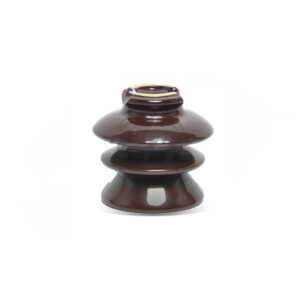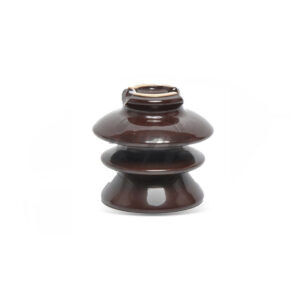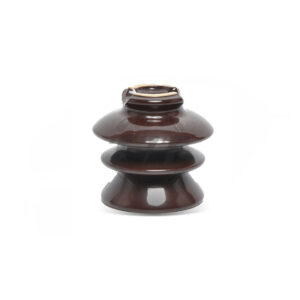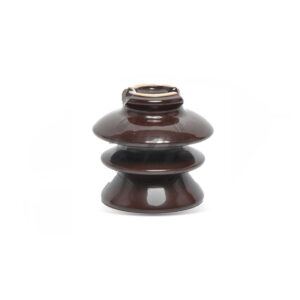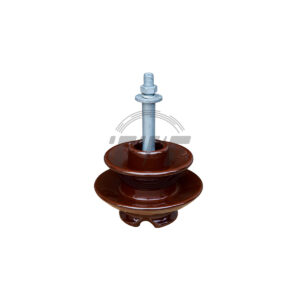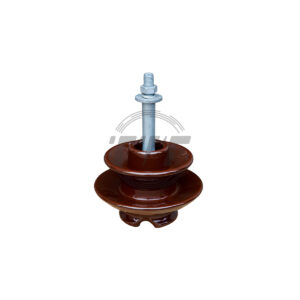Pin Insulator
The Pin Insulator is a kind of insulator. They are used in power distribution for the voltage up to 33KV. They can be placed on the cross arms of the supporting tower.
Showing all 7 results
-
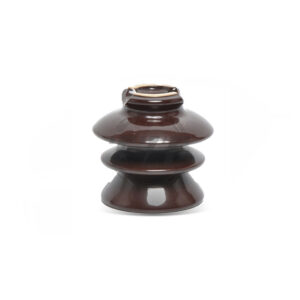
Galvanized Steel Pin Insulator
-

Galvanized Steel Pin Insulator, 33 KV Nominal Voltage, 191 mm Height
-

Galvanized Steel Pin Insulator, 33 KV Nominal Voltage, 245 mm Height
-

Gavanized Steel Pin Insulator, 11 KV Nominal Voltage
-

Gavanized Steel Pin Insulator, 22 KV Nominal Voltage
-

T-11-Y Pin Insulators, Height 133mm, Dia. 140mm
-

T-6-Y Pin Insulators, Height 109mm, Dia. 102mm
Read More
Pin Insulator is an important part for building the overhead line and power line systems. It is regularly installed on the power towers, shafts or various constructions to hold the electric stream back from spilling to the undesirable location from the overhead conductors. We can also call an electrical insulator or a power insulator.The power line insulator can be used as the telephone pole as well.
The material of the electric insulator is not the same as others — conduits and semiconductors. The electric charges can’t go through the electrical insulator.
Materials of Electrical Insulator
There are various kinds of materials for making electrical insulators.
The most widely recognized materials includes Porcelain, Ceramic, silicon elastic, Polymer, and Glass.
Each of these protecting materials has distinctable physical protecting properties. It is crucial to know the properties of each electrical insulator material before picking it.
The following part inoduces the materials of insulator in detail.
Glass insulator and Porcelain Insulators
Glass insulator can be recognized as the earlist insulator in the world. It appears in 18th century. It also can be used as a telegraph. However, after procelain and ceramic insulator introduced in 19th century, glass insulator dimished for a while.
To overcome this problem, experts improve the quality of the glass insulator. They expand the life span of the glass insulator. Then, the advanced glass insulator are normally used today. Compared with other type of insulator, glass insulators present a long lifespan.
Polymeric Insulator
Polymer insulators contain a fiberglass bar layered by polymer weather patterns sheds. These polymer atmospheric conditions sheds are normally evolved from silicon versatile. Scarcely any various substances may similarly be used for weather patterns sheds, including polytetrafluorethylene (PTFE or Teflon), EPDM, EPM, etc. Polymer insulators are inconsistently introduced as silicon flexible insulators or composite insulators. They are around 90% lighter than porcelain types in any case invigorate basically same or better.
Some specifications you should know about the insulator when you purchasing them:
- High mechanical strength to support the load
- High electrical resistance to prevent the leakage of current
- The insulating material should be non-porous
- The material should be free of impurities
After checking the four properties above, you need to make sure other qualifications are meet your requirement.
Features of Transmission Lines Insulators
Here are some distinct features of the TTF insulators:
- Lightweight: Despite being produced using quality material, these insulators convey least weight. This simplifies them to manage when appeared differently in relation to most standard dirt insulators.
- High impact obstacle: Insulators in power system incorporate quality structure to ensure that they are not affected by real impact. This component makes them ideal for different sorts of conditions. They are also shock and vibration attempted.
- High voltage obstacle: As expected, the insulators can go against high voltage. This makes them relevant to an extensive variety of the electrical power structure.
- Hand creates: Although the insulators come in standard plans, you are permitted to interest for uncommonly specialties, and we will benefit them. All you need is to send us the information about the best arrangement.
- Air permeability: These insulators incorporate an astonishing air vulnerability. This basically infers that they license a steady movement of air through them. The inspiration driving permeability is for heat the leaders, especially on high voltage power transmission lines.
- Strong and solid: the insulators are sturdy and reliable for quite a while. They also attract least help cost.
Factors to Consider When Choosing Overhead Line Insulators

